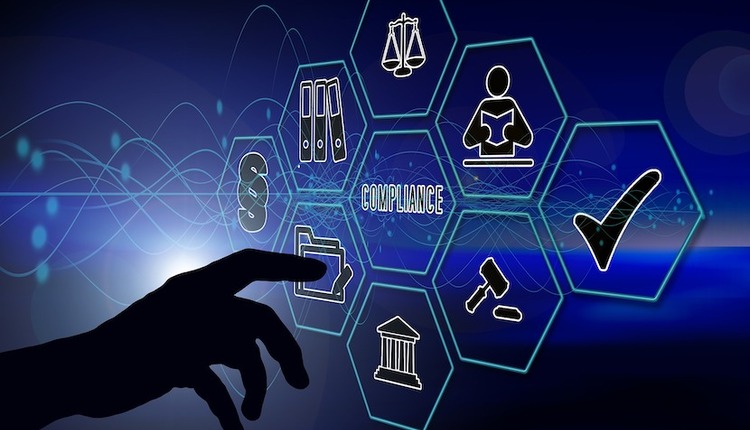
As we move into 2023, businesses need to be prepared for the challenges that IoT and AI will bring to data security. By understanding their data and implementing proper security measures, businesses can protect themselves against the threats posed by these new technologies.
In 2023, data security challenges will primarily revolve around IoT and AI
Data security is an increasingly important issue for businesses of all sizes. With the advent of IoT and AI, the landscape is changing rapidly and new challenges are emerging. Here are three data security challenges that businesses will face in 2023:
1. IoT devices will be a major target for attackers — IoT devices are also proliferating rapidly. These devices are generating ever-increasing amounts of data, which is being used to improve our understanding of the world around us and make better decisions.
IoT devices are becoming increasingly common in business environments, but they often lack adequate security protections. Attackers will target these devices in order to gain access to corporate networks and data. Businesses will need to ensure that their IoT devices are properly secured against attack.
2. AI will be used to launch sophisticated attacks — AI is another technology that is becoming increasingly embedded in our lives and work. AI is being used to solve complex problems and automate repetitive tasks. It is also being used to create more personalized experiences, such as recommendations on what to buy or watch next.
However, it also comes with data security threats. AI-powered cyber attacks are becoming more common and more sophisticated. Businesses will need to invest in stronger security solutions and educate their employees in order to defend against these attacks.
3. Data breaches will continue to occur — Despite the efforts of businesses, data breaches will continue to occur due to the ever-changing landscape of cyber threats
Businesses need to better understand their data and how it flows through their systems
Data security has always been a challenge for businesses, but as we move into an increasingly digitized and connected world, the challenges are only going to become more complex. To combat these challenges, businesses need to better understand their data and how it flows through their systems.
One of the biggest challenges facing businesses is protecting data that is stored in the cloud. With more and more businesses using cloud services, there is a growing risk of data breaches. To combat this, businesses need to ensure that their data is encrypted and that they have robust security measures in place.
Another challenge that businesses will face is protecting data from cyberattacks. As more devices are connected to the internet, there are more opportunities for hackers to gain access to sensitive data. To combat this, businesses need to invest in strong cyber security defenses.
Finally, businesses need to be prepared for the increasing regulation of data. In the European Union, the General Data Protection Regulation (GDPR) has already had a major impact on how businesses collect and use data. In 2023, other regions are likely to follow suit with similar regulations.
To comply with these regulations, businesses need to have a clear understanding of how their data is being used and ensure that they have the necessary consent in place. Businesses must also implement cloud archiving solutions to ensure that the data is properly retained and protected.
By understanding these challenges and taking steps to combat them, businesses can ensure that they are well-prepared for the future of data security.
Businesses need to put in place proper security measures
As digitalization and connectivity continue to grow, so too will the data security challenges facing businesses. To stay ahead of these challenges, businesses need to identify and fix any vulnerabilities in their systems and put in place proper security measures such as firewalls, encryption, and data governance.
Data encryption — Data encryption is a critical security measure for any business. It ensures that data is protected while it is being transmitted and makes it extremely difficult for hackers to access.
However, encryption can be complex, and there are many different types of encryption technologies. Businesses must take the time to understand which types of encryption technologies are suitable for their needs.
Firewalls — Firewalls are another essential security measure. A firewall is a network security system that blocks unauthorized access and protects data.
A firewall filters traffic identifies threats and blocks malicious traffic. Some firewalls are also designed to prevent attacks that have already penetrated your defenses.
However, firewalls only provide a limited amount of protection. To ensure that your business is fully protected, you also need to invest in endpoint security and email encryption.
Data governance — Data governance is a set of policies and procedures that are used to ensure that data is being collected and used properly.
One of the most important aspects of data governance is consent. Businesses need to obtain consent from their customers before collecting data. They must also provide them with a clear explanation of what data will be collected and how it will be used.
Data governance is also important for complying with regulations. Data governance policies help businesses stay in compliance with industry regulations, such as the GDPR.
Businesses need to educate their employees
One of the most important data security challenges businesses face is educating their employees on data security best practices. To create a culture of security, businesses need to educate their employees on data security best practices and make sure they are following them.
Employees should be taught how to identify phishing emails, how to spot red flags in social media posts, and how to keep their passwords secure. In addition, businesses need to have a clear data security policy in place that employees must follow.
The rapid proliferation of IoT devices and AI is transforming the way we live and work. However, it also poses new data security challenges for businesses.
To protect against these challenges, businesses must invest in strong security defenses, including data encryption, firewalls and endpoint security.
In addition, businesses must educate their employees on data security best practices and create a culture of security.
Alex Morgan is a passionate tech blogger, internet nerd and data enthusiast. He is interested in topics that cover data regulation, compliance, eDiscovery, information governance and business communication
















